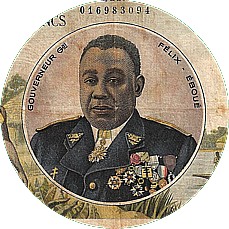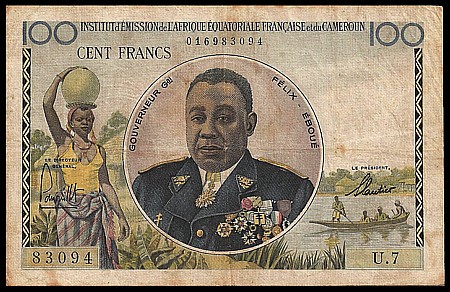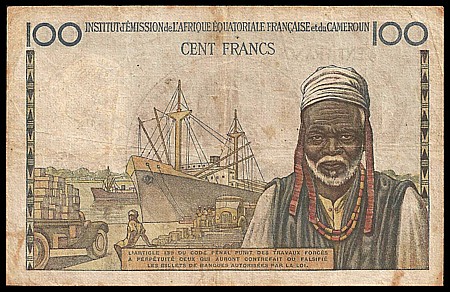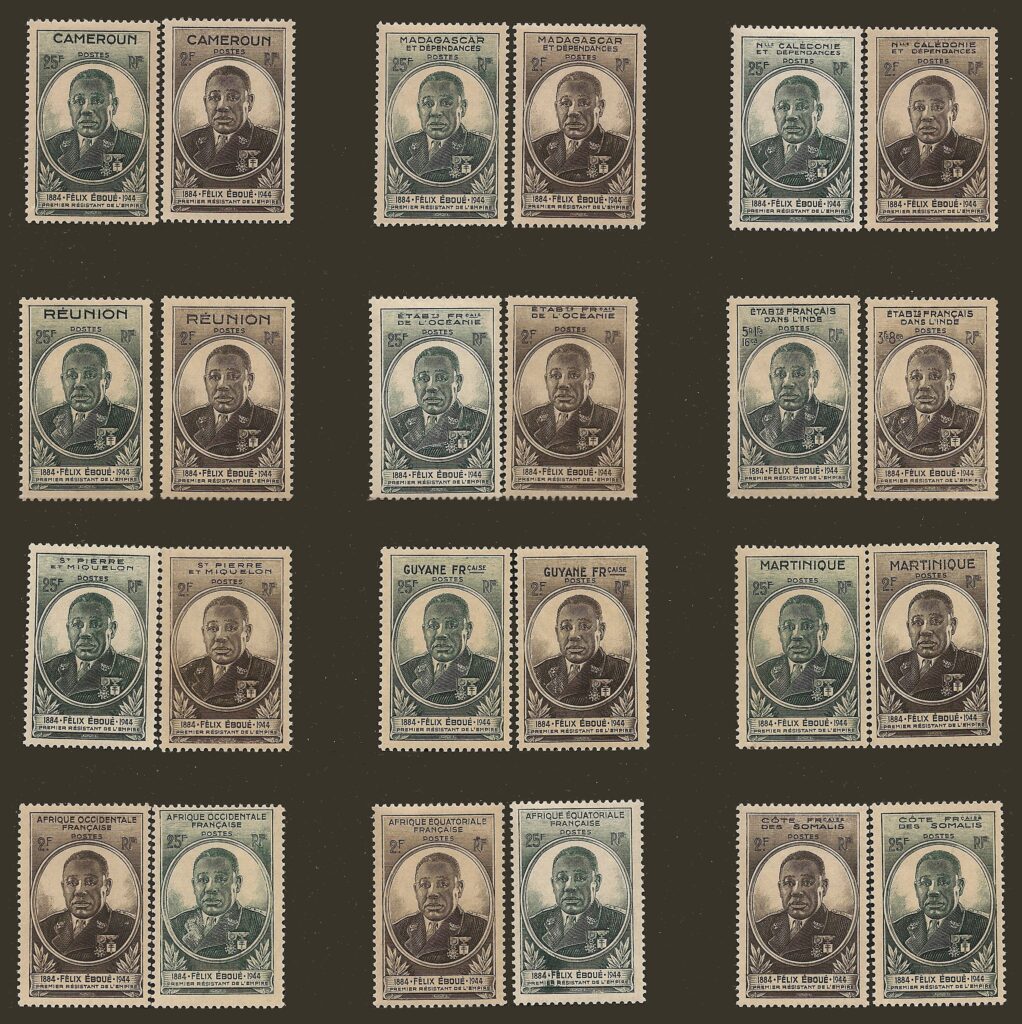FRENCH EQUATORIAL AFRICA
Felix Eboue

In 1884, the day after Christmas, in the city of Cayenne, French Guyana, South America, Felix Eboue was born. His grandparents were slaves, but Felix and his four brothers were all born free. He was an exceptionally athletic child who played soccer for his school team.
He was also a gifted student, and was able to obtain a scholarship to study in Bordeaux, France. He eventually attended and graduated from the colonial school Ecole Coloniale, a school set up to train French colonial administrators. In 2002 the school merged with the École nationale d’administration, a very reputable school in Paris.
After his graduation from the Ecole Coloniale, he worked for many years in the Ubangi-Chari, a French territory now known as the Central African Republic.
In 1932 he was appointed the Secretary General of the Government of Martinique, an island in the Caribbean, and then again in 1934 as the Secretary General for the Government of French Sudan, which encompassed several modern West African countries. In 1936 he received the honor of being the first black governor of Guadeloupe, and island north of Martinique in the Caribbean.
In 1938 he was appointed governor of the African nation, Chad. His work there included obtaining support for the French forces. This support was instrumental in the French wresting control of the territory of their territories in Africa from the German loyalists. When France fell to the German forces in World War II, Eboue had to choose whether to align with the Vichy government (the German administration of France) or follow the Free French. Eboue chose to remain faithful to France and declared his alliance with the Free French. His actions prompted other French colonial administrators to follow suit. This was an extremely important act at the time, because the German presence in Africa was strong, and could have over-run the continent had Eboue chose otherwise. Eboue’s decision helped supply African troops and also helped the allies to ferry airplanes and equipment into and across the continent and even into the Middle East.
From 1941-1944 Eboue served as the governor of French Equatorial Africa, (in French the Afrique Equatoriale Française or AEF). The AEF was a federation encompassing all of the French territories in Central Africa, including the modern countries of Chad, Gabon, Republic of the Congo, and the Central African Republic. While serving as the Governor, he classified some 200 Africans as Evolue, a French word meaning ‘to have evolved’. In an effort to modernize Africans, this term was used in the French Colonial Territories to designate persons who had seemingly assimilated the French Culture of the area and had enough education to speak French and lived in urban areas. These persons were elevated into an elite class within their society, and were held as examples for others to emulate.
Not to be seen as completely French, in 1941 Eboue published a New Native Policy calling for the preservation of traditional African institutions. His success in Africa was due in large part to his partaking in various local activities, visiting many areas within his territory, recognizing local traditions and learning several dialects.
Felix Eboue died on March 17, 1944 of a heart attack. He had the posthumous honor to be the first black man to have his ashes interred at the Pantheon in Paris. His leadership helped the French with their colonies in the Caribbean and in Africa, and even helped the allies to defeat the Nazi’s in World War II. He has been honored many times with statues, his name being placed on schools, streets, on awards at the Ecole Coloniale, etc. He has also been featured on the 100 Francs banknotes for French Equatorial Africa and the Equatorial African States issued in 1961 and 1962. In addition, he was also on the stamps for several countries, including Reunion, French Oceanic States (French Polynesia), French East India, French West Africa, French Equatorial Africa, Djibouti, Cameroon, Madagascar, Guadeloupe, New Caledonia, Martinique, St Pierre et Miquellon, French Guyane, Chad, French Sudan, Central African States and Gabon.


